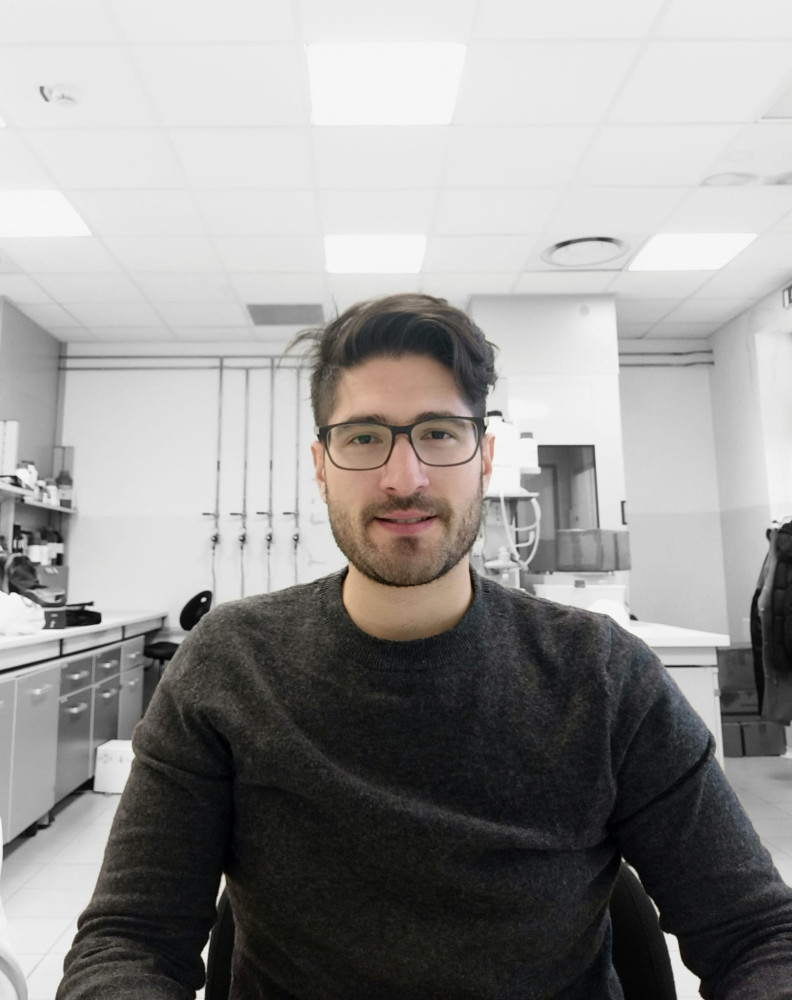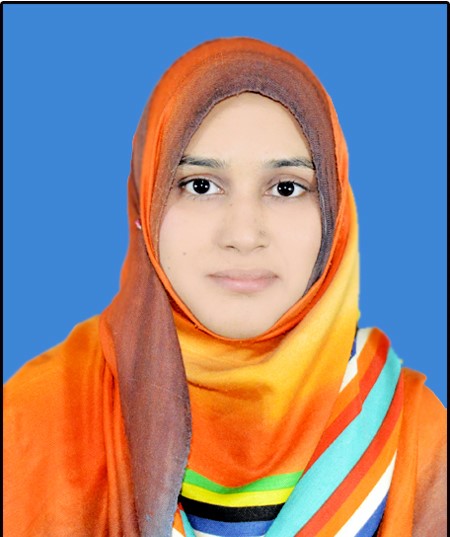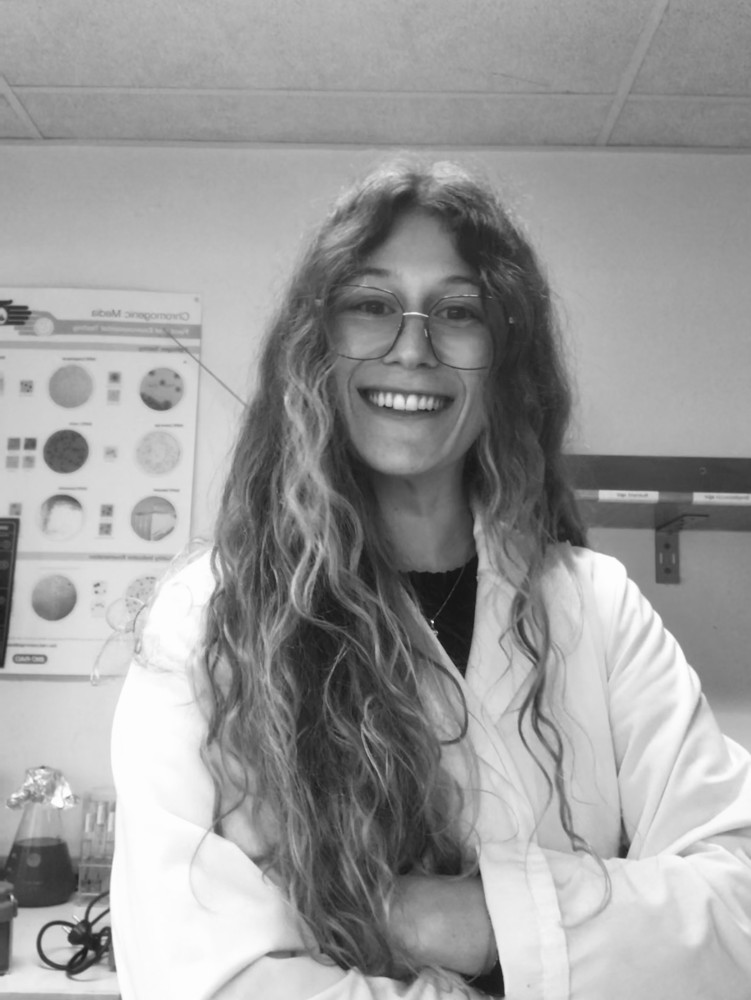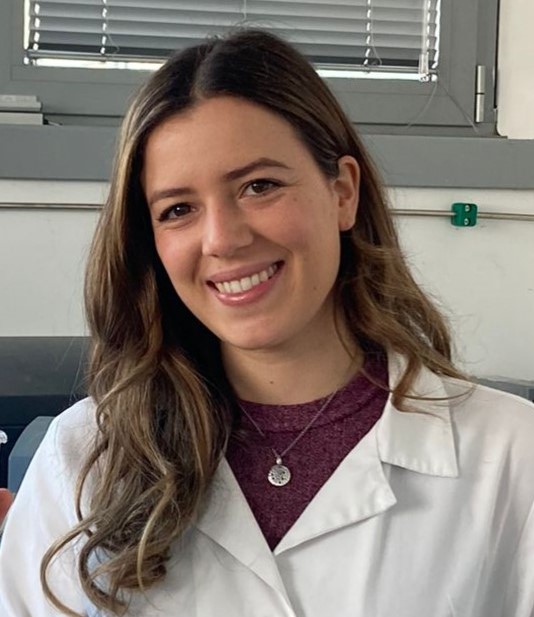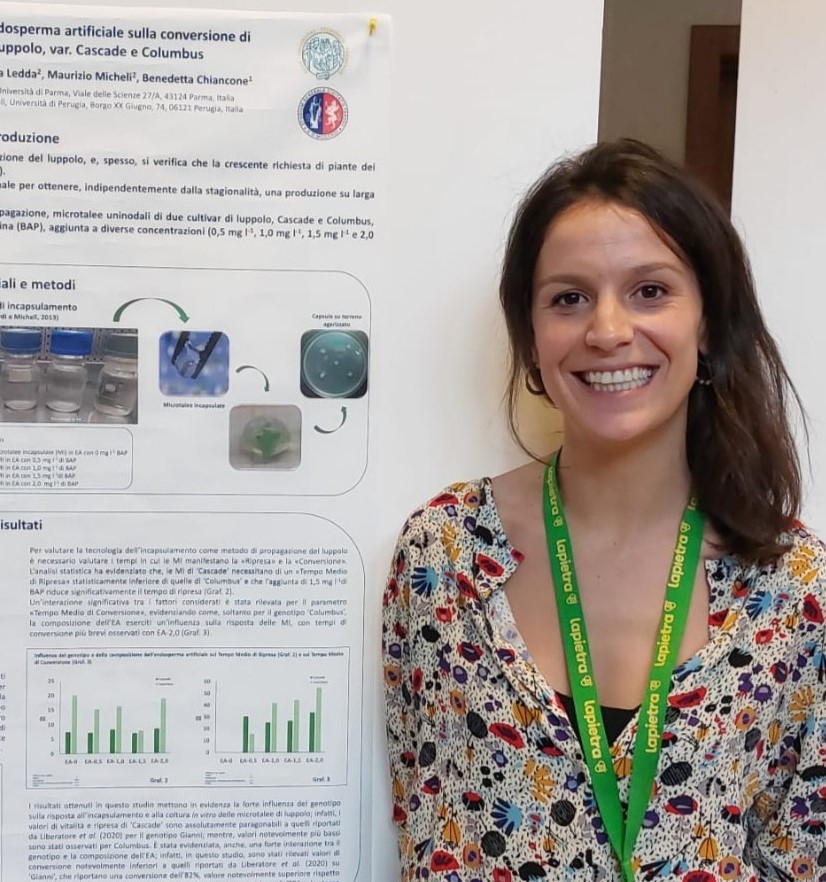Ph.D. in Food Science
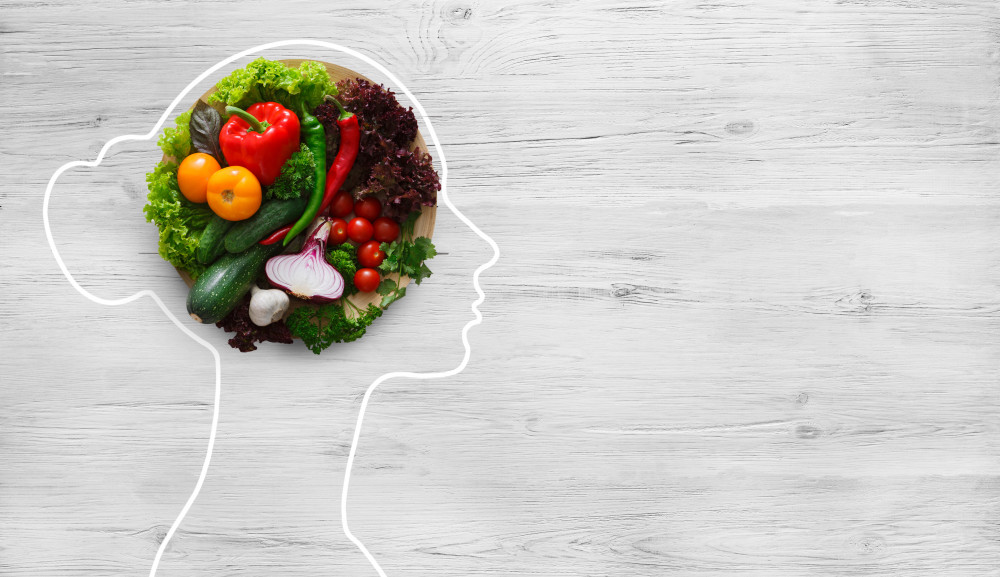 |
The School is actively involved in the PhD course in Food Science, representing the highest point in the training of students in the field of food in our University. This course trains candidates to become researchers, with deep theoretical and practical knowledge and appropriate experimental methodology in the field of food sciences, characteristics needed to face the complex challenges of the area. In many cases, the activities are carried out in strict contact with national and international public and entrepreneurial entities.
|
A list of our present PhD students and of their research projects.
CLICK on each photo or name to know more!
PhD STUDENTS
| CYCLE 39 | ||||
|
Discovering the role of seasonal dietary choices on Mediterranean diet adherence and effect on human microbiota (4-SeasoMED) |
Untargeted metabolomics: a tool for assessing plant food supplement authenticity |
Molecular study of gluten digestion: Implications for celiac disease |
||
|
Mapping the complexity of the diet: circulating metabolites of plant bioactives and food-microbiome-host interactions |
Multi-omics approaches for the characterization of toxigenic fungi, in a climate change scenario |

Phytochemical and genetic mapping of coffee plant leaves for identification of molecules of nutraceutical interest
|
||
|
Woman's health: eating habits, nutritional status and main sex related risk factors in the physiological phases of female life
|
Nudging targeted population groups towards more sustainable food choices |
Study of the association between phenolic metabotypes and cardiometabolic health in response to chronic intake of (poly)phenols |
||
|
CYCLE 38 |
||||
|
Fertilizers from agri-food residues for sustainable intensification in agriculture |
Tailoring qualitative properties of foods by technology: use of innovative technologies for improving safety, quality and sustainability |
Development of new approaches for the evaluation of the metabolism of bioactive compounds of nutritional interest |
||
|
Evaluation, development and application of educational and empowerment models aimed at promoting healthy and sustainable diets |
Methodologies to guide consumers towards a healthy and sustainable Mediterranean diet |
Study and characterization of new ingredients recovered from plant material for application in novel foods, by advanced chromatographic techniques and high-resolution mass spectrometry |
||
|
Design and development of meat and dairy analogues using vegetable proteins from upcycled sources |
Innovative bioprocesses and extraction techniques of bioactive compounds from agricultural waste biomasses |
Digital solutions for on-farm crop quality assessment |
||
|
Laila Guimarães Zeraik Cardoso Investigation of in vivo endogenous and/or exogenous production of phenolic metabolites using (un)targeted metabolomics |
Dietary exposure assessment to chemical contaminants through probabilistic approaches |
Application of genomics and metagenomics for the detection and characterisation of antimicrobial resistance genes in food-borne pathogens |
||
|
Development of databases and analytical methods for the study of food bioactive compounds and the interaction between food – microbiome - host |
Screening of lactic acid bacteria to improve the technological, nutritional and functional value of products and by-products in the agri-food chain |
Assessment of organic amendments on vegetative and productive performance of different plants under different growing conditions |
||
|
Enzyme assisted extraction and modification of lignocellulosic biomasses for the production of functional oligosaccharides and other nutraceutical compounds |
|
|
||
|
CYCLE 37 |
||||
|
Using consumer science to improve healthy and sustainable eating behaviors |
Development of innovative tools for nutrition education: a promising strategy to tackle and prevent malnutrition and to reduce the environmental impact of food through the adoption of healthier and more sustainable diets |
Insects as alternative protein source in animal feed |
||
|
Bio-sustainable technologies to produce raw materials and food products with improved physico-chemical and nutritional properties |
Development of methods and technologies for the specificinhibition of enzymes relevant for low colour stability of fruit juices and nectars |
Bioactive compounds in Hop leaves: from synthesis factors to pratical applications |
||
|
Employment of Microbial platforms for the valorization of agri-food by-products and waste |
Optimization and Validation of Sustainable Packaging Materials for |
Metabolic phenotypes related to dietary (poly)phenols and their impact on cardiometabolic health |
||
|
Large-scale phenotyping using milk Fourier Transform Infrared Spectroscopy and factors affecting the accuracy of predictions |
Indigestible polysaccharides/oligosaccharides from different food sources: extraction, enzymatic hydrolysis and structural characterization |
Computational approaches integrated to biomolecular technologies to study foodborne viral infections: virulence factors and identification of food-grade components with potential anti-viral activity |
||
Untargeted/targeted UHPLC-HRMS approach for quality assessment in hazelnuts and finished products of the confectionery industry
|
Planetary boundaries and diets in Latin-American and the Caribbean: an optimization study |
|
||
| CYCLE 36 | |||||
| CYCLE 35 |



















